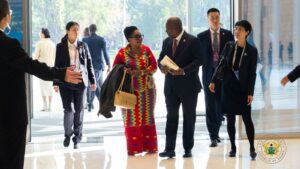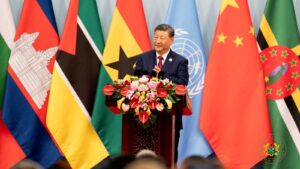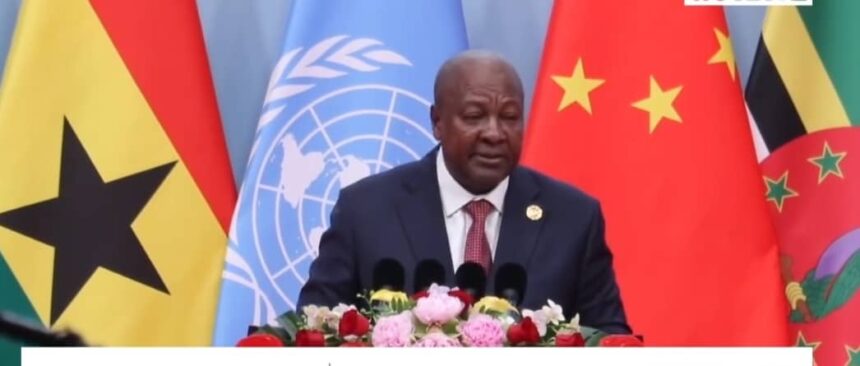President John Dramani Mahama has reaffirmed Ghana’s commitment to gender equality and women’s empowerment on the global stage, announcing landmark initiatives aimed at transforming the lives of women across the country.
Speaking at the Global Leaders’ Meeting on Women in Beijing, China, President Mahama emphasized Ghana’s strategic efforts to embed gender considerations into national development frameworks. “Under my leadership and in my capacity as the African Union Champion for Gender and Women’s Empowerment,” he stated, “the Government of Ghana has taken decisive steps to mainstream gender across its national development policies.”

This declaration comes amid growing global calls for inclusive governance and equitable economic systems. Mahama’s remarks signal Ghana’s alignment with global gender equity goals, while also spotlighting homegrown solutions tailored to local realities.
One of such proposed initiative is the establishment of a Women’s Development Bank, a financial institution designed to address the systemic barriers faced by women entrepreneurs. “To further empower women economically,” Mahama announced, “Ghana is establishing a Women’s Development Bank to provide low-interest loans, financial literacy, training, and business development support to our women entrepreneurs.” President Mahama added.
The bank is expected to serve as a catalyst for inclusive growth, offering women access to capital and capacity-building tools that have historically been out of reach. Analysts say the move could significantly boost female participation in Ghana’s formal economy, particularly in sectors such as agriculture, trade, and small-scale manufacturing.

As Ghana positions itself as a regional leader in gender-responsive policy, Mahama’s address underscores the importance of political will, institutional innovation, and sustained investment in women’s potential. The initiatives outlined in Beijing reflect a broader vision of development one that is inclusive, equitable, and driven by the transformative power of women.
Source: Shallin Bosomtwi






